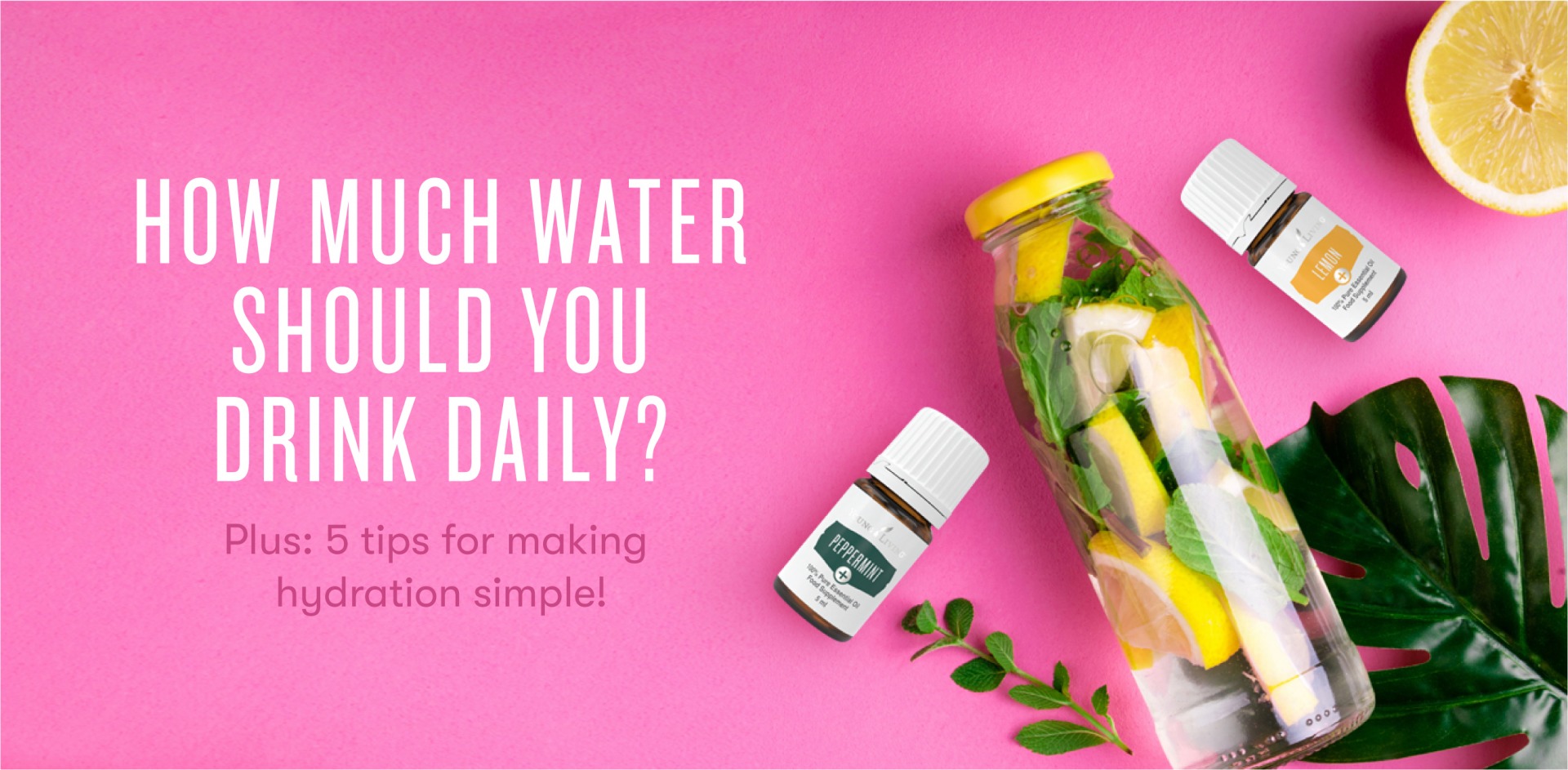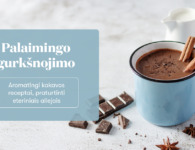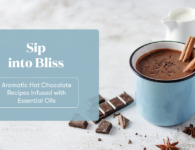Ahhh! There’s nothing quite as refreshing as drinking a tall glass of water. But there’s much more to water than meets the eye—or dry mouth. For instance, did you know that your body contains more water than any other substance? Or that every system in your body needs it to function properly?
Water gets rid of waste, regulates body temperature, provides cushioning for joints, and can protect sensitive tissue—along with a sea of other benefits.
Check out these super easy tips to help you make drinking water a healthy habit.
How much water should you drink?
You may have heard that drinking just under 2 litres of water a day is standard, but according to the National Academies of Sciences, Engineering, and Medicines, you should be drinking a little more.
The adequate intake (AI) recommends around 2.8 litres for women over the age of 19 and 3.9 litres for men over the age of 19. When you’re figuring out how much water to drink, consider these factors:
- Age: Children need less water, while the elderly need more.
- Activity level: Whether you’re running a 5K or a marathon, athletes lose more water through perspiration. It’s important to refuel before, during, and after workouts.
- Pregnancy/breastfeeding: Women who are pregnant or breastfeeding should increase water consumption.
- Climate: While you’re soaking up the sun, make sure to replenish your fluids more often.
- Health: When you’re experiencing symptoms of illness like vomiting or fever, make sure to increase your water to stay hydrated.
When in doubt, listen to your body. Studies show that humans feel thirst before any negative effects of dehydration begin. So when you’re thirsty, drink up!
YL tip: The National Academies of Sciences, Engineering, and Medicine specify that the total water intake from the above statistics includes “drinking water, water in beverages, and water that is part of food.” This is great news for those of us working on better drinking habits! We get 19% of the recommended water consumption from sources beyond our water bottles!
Why you need water
Water is essential for your organs, tissues, and cells. Here’s what water does for your body:
- Keeps your body temperature within a normal range.
- Smooths and softens your joints.
- Protects your spine.
- Helps eliminate waste through urine, sweat, and bowel movements.
- Helps sustain endurance when working out.
- Quickens your brain function.
Can I have too much water?
The answer is yes, but it’s very rare. Hyponatremia—when you drink so much water in a short amount of time that it throws off the balance of sodium in your blood—can happen if you exercise vigorously for a long period of time and then drink a lot of water very quickly. However, you can keep your post-workout hydration covered by choosing beverages packed with electrolytes to keep the balance in check!
Tips for staying hydrated
- Keep a water bottle close by.
- Skip sugary drinks. Although you’re getting fluid from juice, soda, or alcohol, water is the best source for hydration.
- Drink a glass of water before and during each meal.
- Hydrate before, during, and after sweating it out at the gym.
Our best tip for daily hydration? Refresh your water with a burst of flavour, so you can savour every swig.
Check out these mouth-watering recipes!
Tropical Twist:
- 1 small spoonful pineapple juice
- Lime+
- 250 ml of water
Stimulating Sip:
- Sliced Lemons
- Fresh Mint leaves
- Peppermint+
- Lemon+
- 500 ml of Water
H2 Oasis:
- Sliced oranges
- Lemon or Orange+
- Young Living Citrus Fresh®+
- 1 pitcher Water
YL tip: Oil and water don’t mix. Use something to help disperse the oil, like pureed fruit, or stir well before drinking.
How do you stay hydrated?
Tell us in the comments or contact us at: mseublog@youngliving.com




















No comments